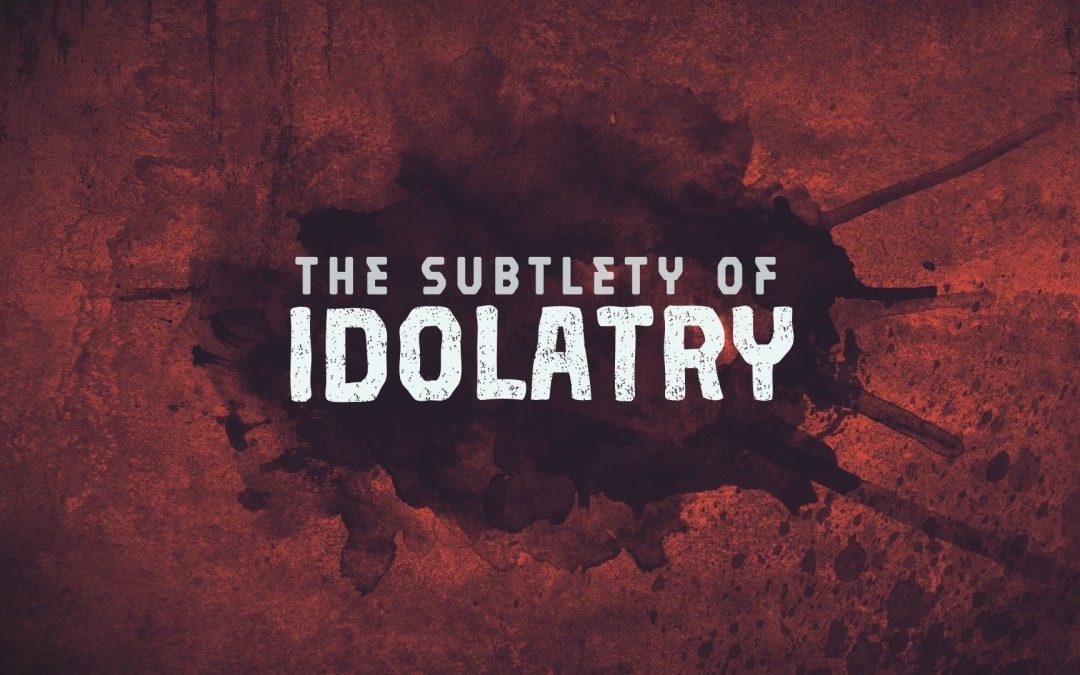Alas! perimus licitis [We perish by permitted things], inordinate love to, and immoderate pursuing after things lawful in themselves destroy more souls than things sinful and unlawful in themselves do. The excuses of those invited to the marriage of the king’s son are founded not on things simply sinful, but on lawful things: the farm, oxen and married wife [cf. Luke 14:16–24]. Now the house is swept [cf. Matt. 12:44], and you are in hazard, if you guard not, to return to a greater and greedier feeding on those vanities. I dare say there are multitudes of men and women, who never so much hungered for the communion as they have longed to have these solemn days over and by, that they might win back to their callings, worldly businesses and pleasures. O! what a weariness have they been to them? As sacred solemnities were to those spoken of in Amos 8:5, who cried, When shall the new-moon be gone, that we may sell corn; and the sabbath-day, that we may set out wheat? To many these days of fasting and spiritual feasting and communicating have been as a bridle bit in their mouths, to restrain them from running on the mountains of their vanity; and who knows but, ere another communion comes, the Lord may feed you as a lamb in a large place [Hosea 4:16]? “A Sermon Preached After the Communion on Psalm 85:8 (He will speak peace to his people, and to his saints. But let them not turn again to folly),” in The Unserarchable Riches of Christ.
[T]here may be a zeal that is not according to knowledge, and in a thing that is not good; and here the more zealous and exercised any be, and the faster they run, they go the further wrong and out of the way: the greatest zealots and bigots in unwarrantable, though specious-like things,* are readily the most dangerous. My son (said dying David to his son Solomon) know thou the God of thy fathers; and to Israel, Keep and seek for the commandments of the Lord your God. Remarkable words, keep and seek, plainly insinuating that there can be no keeping of God’s commandments without seeking them, without seeking to know and understand them well (1 Chron.28:8–9).
§6. Fourthly, that whereunto more respect and account is given than God allows to be given to it, and wherein more excellency is placed than God has put into it, or will at all communicate to it, is an idol exalted against God; which makes Zanchius to say, if you attribute to Luther or Calvin that they could not be mistaken, you are making idols for yourself.1 Now, when Hooker accounts festival days, for God’s extraordinary works wrought upon them, to be holier than other days,2 what man of sound judgment will not perceive that these days are idolized, since such an eminence and excellency is put in them, whereas God has made no difference between them and any other days? We have seen also that the ceremonies are urged as necessary,3 but did ever God allow that things indifferent should be so highly advanced at the pleasure of men? And, moreover, I have shown that worship is placed in them;4 in which respect they must needs be idols, being thus exalted against God’s Word, at which we are commanded to hold us in the matter of worship. Last of all, they are idolatrously advanced and dignified, in so much as holy mystical significations are given them, which are a great deal more than God’s Word allows in any rites of human institution, as shall be shown afterwards.5 And so it appears how the ceremonies, as now urged and used, are idols.
George Gillespie, A Dispute Against the English Popish Ceremonies (Naphtali Press, 2013), 192–193.
———————
1 . Lib 1, de Viti. Ext. Cult. Oppos., col. 505 [cf. Zanchi, Opera (1617), book 4, col. 505]. “Si Luthero vel Calvino tribuas, quòd non potuerant errare, idola tibi fingis. . . .”
2 . Eccl. Polity, lib. 5, sect. 69 [cf. Works (1821), 2.281].
3 . Supra, part 1, cap. 1 [page 23].
4 . Supra, cap. 1 [page 132].
5 . Infra, cap. 5 [page 225].


